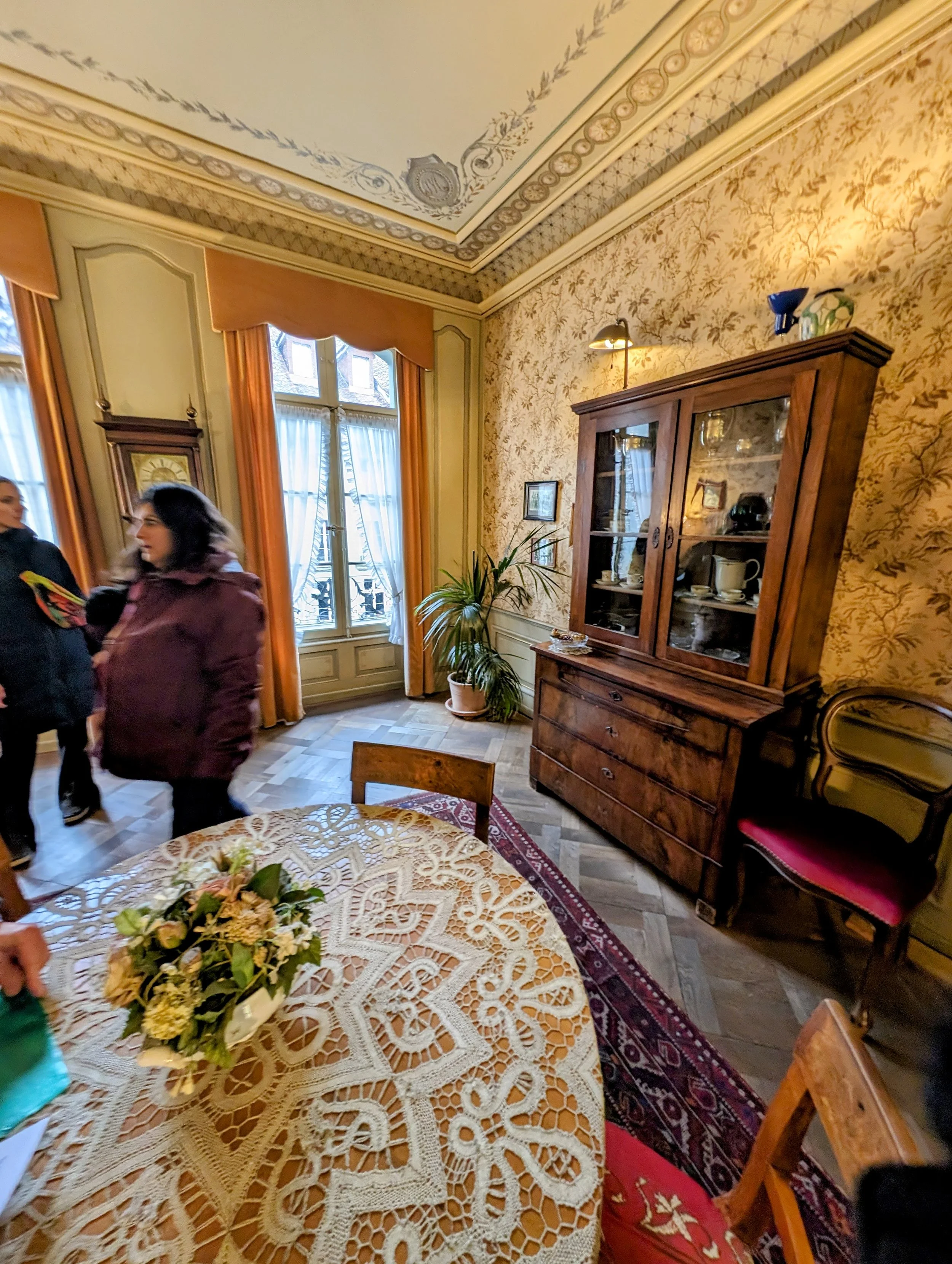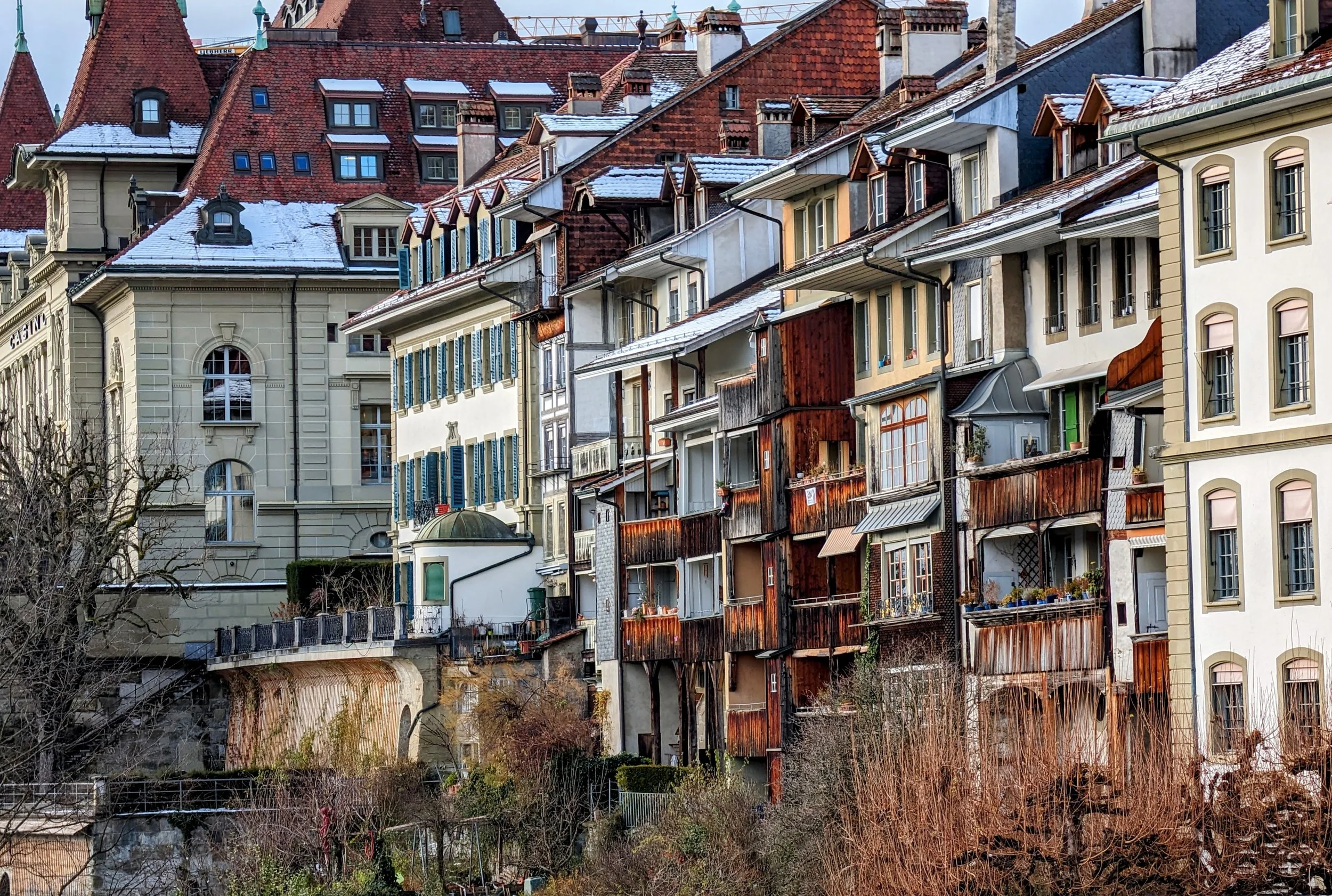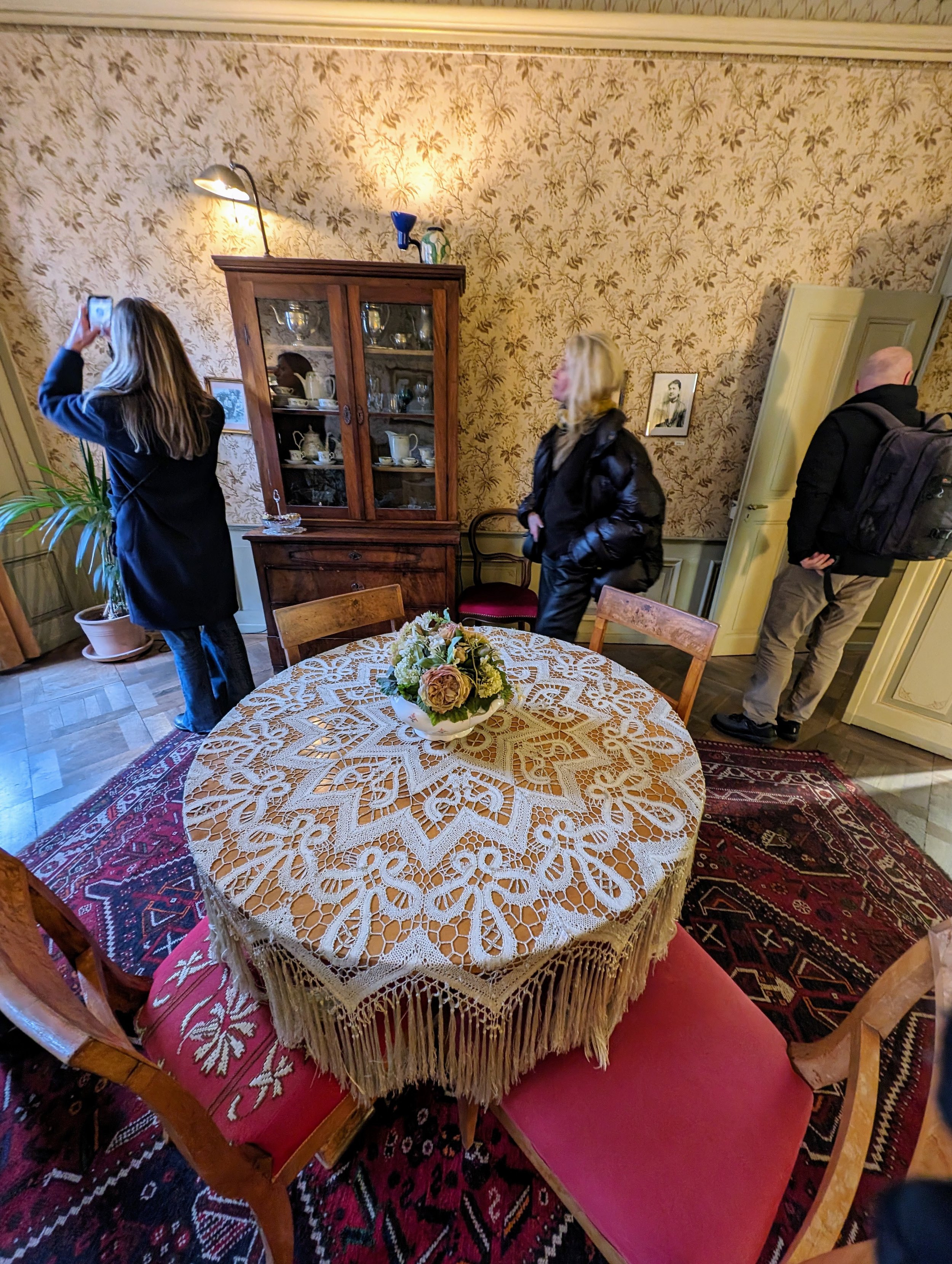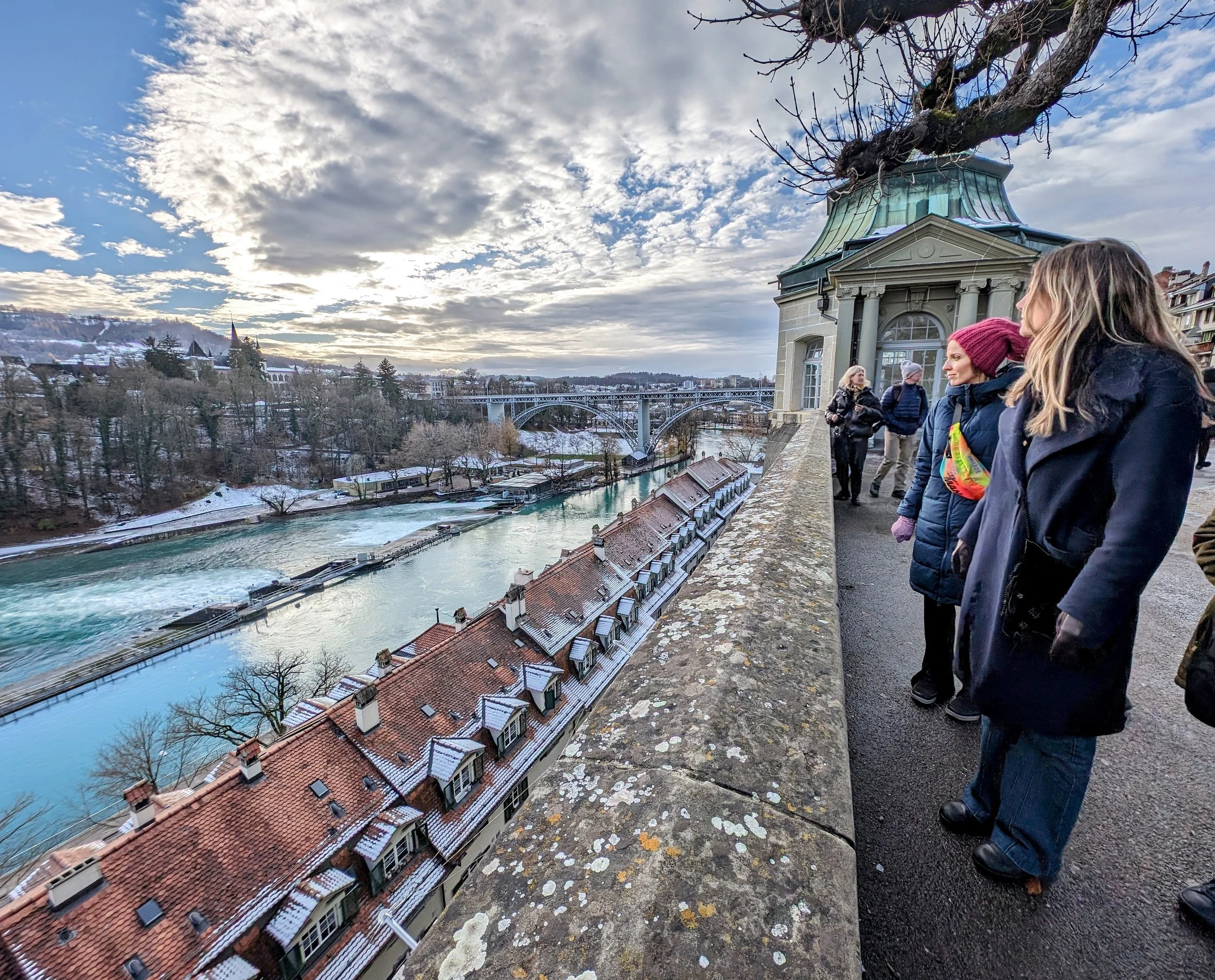The Zytglogge Clock Tower and Einstein's Apartment, both in Berne's Old Town
Zytglogge Clock Tower
If you’re ever travelling through the the heart of Switzerland, you must visit the charming city of Berne, where history, culture, and remarkable architecture intersect. I spent a couple of days in Berne just before Christmas with an international press group, hosted by Swiss Tourism - and a wonderful and very interesting time we had…
Among Berne’s many attractions is the Zytglogge Clock Tower, which stands as an enduring symbol of the city's heritage, both as a timekeeping marvel and a testament to Swiss craftsmanship. We were fortunate to be given a private tour of this remarkable old clock tower and I, for one, found the hour we spent up in its draughty old floors fascinating.
Zytglogge Clock, Berne
The Zytglogge is situated in Berne's medieval Old Town. Its origins trace back to the early 13th century when it served as one of the primary entrances to the city. Initially constructed in wood, the tower served a defensive function as part of Berne's fortifications. Over time, it underwent numerous renovations and reconstructions, evolving into the impressive structure we admire today.
The clock itself dates back to the 15th century, ranking as one of Switzerland's oldest. In 1530, master clockmaker Kaspar Brunner installed the Zytglogge's iconic astronomical clock. The amazing and intricate timepiece not only tells the time but also provides astronomical information such as the position of the sun, moon, and zodiac signs. It was installed in the tower in the year 1530 - and its complex workings have been captivating visitors and locals alike for centuries. Brunner's work on the Zytglogge Clock is a testament to the remarkable craftsmanship of his time and remains an enduring symbol of Berne's rich heritage.
View from top of Zytglogge Clock Tower
Architectural Splendour
One of the most remarkable features of the tower is its ornate astronomical clock face. This clock face showcases a set of animated figurines that perform a captivating display every hour, drawing crowds of spectators. Among these figurines are the renowned cockerel, jester, and bears, each symbolising different facets of Berne's history and folklore.
The tower itself is a striking example of Swiss medieval architecture. Its detailed stonework, elaborate frescoes, and finely crafted sculptures blend the Gothic and Renaissance styles, creating a structure that transports visitors back in time. The Zytglogge stands as a testament to the craftsmanship of its era.
Function and Significance
Throughout its existence, the tower has served multiple purposes. Initially, it functioned as a city gatehouse, granting access to Berne. In subsequent years, it housed a prison and even accommodated a small fire station.
Symbolically, the Zytglogge represents Berne's resilience and ties to its past. It has borne witness to centuries of change, yet it endures as a potent reminder of the city's roots and traditions. It symbolises Berne's commitment to preserving its heritage while embracing the modern era.
It’s probably true to say that the clock tower transcends its role as a mere timekeeping device. It stands as a living testament to the city's history, craftsmanship, and cultural identity.
Situated right in the heart of the Old Town, this iconic landmark continues to captivate travellers from all corners of the globe. You’ll see crowds of tourists gathering to gaze up at the clock face most days, even in the depths of winter. It offers a glimpse into the past and serves as a reminder of Berne's timeless allure.
Einstein's Berne Apartment: A Glimpse into the Mind of a Genius
Just down the main drag you can visit an unassuming apartment building which holds a significant place in the history of science. This unpretentious abode was once home to none other than Albert Einstein, the renowned physicist whose groundbreaking theories revolutionised our understanding of the universe.
Einstein, a young patent examiner at the Swiss Patent Office, moved to Berne in 1902 with his wife, Mileva Maric, and their young son, Hans Albert. The couple settled in a modest third-floor apartment at Kramgasse 49, a bustling street in the heart of the city. This apartment, which is now a museum known as the Einstein House, offers visitors a unique opportunity to step into the life and mind of one of the greatest scientific thinkers of all time.
You could say the Einstein House in some ways reflects the simplicity and intellectual depth that characterised Einstein himself. The apartment consists of just two small rooms, a kitchen, and a bathroom, providing an intimate look at the modest lifestyle of the Einsteins during their time in Berne. The rooms are adorned with period-appropriate furnishings, and visitors can see personal items, photographs, and letters that offer insights into Einstein's family life and early career.
One of the most intriguing aspects of the Einstein House is the study where Albert Einstein developed some of his groundbreaking theories. This room, with its old wooden desk and simple furnishings, is where he formulated the Special Theory of Relativity in 1905, forever changing our understanding of space and time. The blackboard still bears the remnants of his mathematical scribbles, offering a glimpse into the thought processes of a genius.
Visitors to the museum can explore the various exhibits and multimedia presentations that delve into Einstein's scientific achievements, his personal life, and his influence on the world. The museum also hosts rotating exhibitions and special events that provide a comprehensive view of Einstein's contributions to science and society.
The edge of Berne Old Town
Beyond the physical artefacts, there’s no doubt that the Einstein House holds a sense of reverence and inspiration for those who visit. It's a place where the line between the ordinary and the extraordinary becomes blurred, reminding us that profound ideas can emerge from the most unassuming settings. It's a testament to the power of imagination, curiosity, and dedication to shaping the course of human knowledge.
Einstein's time in Berne may have been relatively brief, but the impact of his work and the legacy of his humble apartment continue to resonate with people from all corners of the globe. The Einstein House serves as a symbol of scientific inquiry and innovation, reminding us that even in the most modest of circumstances, one can unlock the secrets of the universe. You could argue that it is a must-visit destination for anyone seeking to appreciate the intersection of genius and everyday life and to pay homage to one of the greatest minds in human history.
Berne in winter















